World
Lee Jae-myung Arrives in Beijing for Four-Day Visit, Meets Xi Jinping for Second Time in Two Months
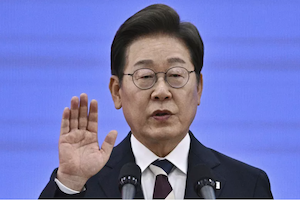
South Korean President Lee Jae-myung arrived in Beijing on the 4th to begin a four-day visit to China, marking the first visit by a South Korean president since 2019. On the 5th, Lee is scheduled to meet Chinese President Xi Jinping, attend a business forum, and hold talks with Premier Li Qiang, before traveling to Shanghai on the 6th.
More than 200 leading South Korean business figures are accompanying the delegation, including Samsung Electronics Chairman Lee Jae-yong, SK Group Chairman Chey Tae-won, and Hyundai Motor Group Chairman Chung Eui-sun. Discussions are expected to cover supply chain investment, the digital economy, and cultural exchanges.
According to reports, the Lee–Xi meeting will focus on trade, economic cooperation, and security issues, with Seoul hoping Beijing will play a stabilizing role amid rising regional tensions. Analysts note that recent U.S. military action against Venezuela, North Korea’s renewed missile tests, and heightened China–Japan friction over a potential Taiwan contingency have made the geopolitical environment more sensitive. This will be the second meeting between Lee and Xi within two months, signaling Beijing’s intent to strengthen economic cooperation and tourism exchanges with South Korea.
The trip is also Lee’s first visit to China since taking office in June last year, coinciding with a period of heightened global tensions after U.S. President Donald Trump confirmed U.S. strikes on Venezuela and North Korea launched multiple ballistic missiles on the 4th. Analysts suggest that amid strained China–Japan relations, Beijing may be more inclined to deepen engagement with Seoul to keep supply chains running smoothly.
Markets are closely watching three key issues from the Xi–Lee talks: whether South Korea will propose concrete measures to narrow its trade deficit with China, how both sides will manage sensitive issues such as North Korea and Taiwan, and Washington’s response. Whether Beijing will ease restrictions on South Korean content and tourism has also drawn attention, as Seoul adopts a more cautious diplomatic strategy while balancing its ties with the United States and Japan.
- 79 reads
Iran Protests Continue as Trump and Senior Tehran Officials Trade Barbs
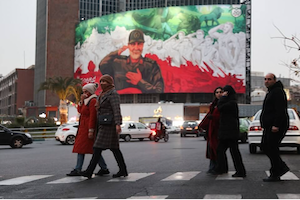
As Iran’s currency, the rial, has plunged sharply, inflation has surged and living conditions have deteriorated, large-scale economic and anti-government protests have erupted across multiple parts of the country. The demonstrations have entered their sixth day, spreading from the capital Tehran to several other towns and cities, and have led to clashes with security forces. At least seven people have been killed, with dozens injured or detained, marking the most significant wave of unrest since the nationwide protests sparked by the death of Mahsa Amini in 2022.
Protesters are no longer focused solely on economic grievances. Some crowds have chanted overtly anti-government slogans, while police and security forces have at times responded with live ammunition, drawing heightened domestic and international attention.
U.S. President Donald Trump posted on his social media platform Truth Social, stating: “If Iran shoots peaceful protesters as it usually does, the United States will come to rescue them. Our bullets are loaded and ready.” The remarks were widely interpreted as a direct warning to the Iranian government, implying that Washington could resort to military or other forms of action if necessary to protect demonstrators. Following Trump’s comments, the U.S. State Department publicly shared videos of the protests and voiced support for the “courage and determination” shown by the Iranian people.
Senior Iranian official Ali Larijani, a former speaker of parliament and currently secretary of the Supreme National Security Council, accused the United States and Israel of inciting the protests. He warned that “U.S. interference in Iran’s internal affairs will lead to chaos across the entire region and the destruction of American interests. The American people should take care of their own soldiers.”
Iran’s Foreign Ministry condemned Trump’s remarks as provocative and threatening, accusing Washington of escalating regional tensions. Officials said that if the United States were to intervene, Iran would respond with swift, comprehensive and decisive countermeasures.
Some reports also noted that Iran’s leadership views the United States and its regional military presence as potential “legitimate targets,” and has not ruled out retaliation should such actions be deemed hostile.
Iran’s ambassador to the United Nations has submitted a formal letter of protest to the UN secretary-general and the Security Council, describing the U.S. president’s statements as “reckless and inflammatory threats,” and urging the international community to condemn the remarks to prevent further deterioration of the situation.
The current wave of protests was triggered by economic hardship and currency depreciation but has quickly evolved into broader social and political discontent. While bearing similarities to the protests following Mahsa Amini’s death in 2022, the unrest has not yet spread to every province nationwide. U.S.-Iran tensions have been steadily rising since U.S. airstrikes on Iranian nuclear facilities last year, and the latest protests and war of words have once again intensified the confrontation between the two sides.
- 54 reads
FOWPAL Hosts Global Virtual Event for World Mental Health Day 2025
- Read more
- 800 reads
Switzerland Adds Stalking Offence to Criminal Code in 2026, with Penalties of Up to Imprisonment
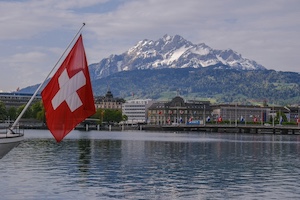
The Swiss federal government has announced that, starting from January 1 this year, stalking behavior will be formally incorporated into the Swiss Criminal Code. Under the new provisions, anyone who persistently follows or harasses another person may face a maximum sentence of up to three years’ imprisonment or a fine in lieu of imprisonment. The main objective is to strengthen protection for victims in response to the continued rise in such cases in recent years.
According to a 2022 survey by the Swiss Crime Prevention agency (SKPPSC), about 2% of the national population had experienced stalking within the past five years. Such incidents occur across all segments of society, affecting both men and women in various gender combinations.
From a gender distribution perspective, women are more likely to become victims. Based on statistics from the Canton of Bern in 2023, 87% of stalking victims were women, 41% of perpetrators were former partners, and cases of men stalking women were significantly more common than women stalking men.
Analysis of motivations indicates factors such as revenge, hatred, and a strong need for recognition or attention. Most stalking cases are not short-lived; they may last for months or even years, and in extreme cases for decades. With technological advancements, methods of harassment have also become more diverse.
SKPPSC emphasizes that early reporting is crucial for protecting victims. Once the police or relevant authorities intervene, many stalking cases come to an end. Early intervention also reduces the risk of victims suffering severe and long-term harm. Victim support centers are currently available throughout Switzerland, providing immediate assistance and legal counseling.
- 632 reads
Explosion at Alpine Bar in Switzerland on New Year’s Eve Causes Heavy Casualties

In the early hours of New Year’s Day, an explosion and fire broke out at a bar in the Alpine ski resort of Crans-Montana in Valais, Switzerland. Local media and police reported severe casualties at the scene. The incident occurred during a New Year’s Eve party, with an estimated crowd of more than 100 people. Police said dozens may have been killed and more than 100 injured.
Witnesses said the fire spread rapidly, and panic during attempts to escape led to crowd surges. The interior of the bar was chaotic. The injured were transported by emergency services to nearby hospitals, with some in critical condition. Authorities said the exact cause of the explosion is still under investigation, and accidental factors have not been ruled out. Police also stated that terrorism is unlikely, and the current focus is on identifying the deceased and providing medical care.
Swiss officials announced a five-day national mourning period, as the government and rescue agencies work to handle the aftermath. The Valais police chief said identifying the victims could take several days and that families have been notified. Authorities have cordoned off the affected area and imposed flight restrictions in the surrounding airspace to facilitate rescue and investigative operations.
- 52 reads
The Digital Age Brings an End to Physical Letters: Denmark Becomes the World’s First Country to End Traditional Postal Mail

Driven by digitalization and persistent operating deficits, Denmark’s state-owned postal service, PostNord, delivered its final batch of physical letters on December 30 and officially ceased letter delivery services on December 31, bringing to an end more than 400 years of public mail delivery history.
Denmark ranks among the world’s most digitally advanced countries, with both government and private sectors widely adopting online services. As a result, the volume of official documents and personal letters sent in physical form has declined sharply. According to PostNord, letter volumes in 2024 fell by more than 90% compared with 2000. Last year, PostNord recorded an operating loss of approximately 428 million Danish kroner. In light of the drastic drop in mail volumes and long-term losses, PostNord ended its state-run letter delivery service on December 31 and will refocus its operations on parcels and express delivery.
The Danish government has designated the private logistics company DAO to take over the handling of physical letters. In the future, members of the public who need to send letters can do so at DAO service points, and DAO will also offer paid services such as home pickup. During the transition period, the government is providing DAO with subsidies of about 110 million Danish kroner . Should DAO be unable to continue providing letter services in the future, the government remains obligated to appoint another provider to ensure that letter-sending options are not interrupted. However, due to limitations in internet coverage and digital access, postal services still play an important role in rural communities, among women, and within low-income groups, who may be more significantly affected by this change.
- 103 reads
Israel Recognizes Somaliland’s Independence; China Opposes

Israel has formally recognized Somaliland—located in northeastern Africa and mutually recognizing sovereignty with Taiwan—as an “independent and sovereign state,” and has established diplomatic relations with it. Chinese Foreign Ministry spokesperson Lin Jian said today that China expresses grave concern over this move and firmly opposes it. China noted that Somalia issued an immediate statement rejecting the move, and that regional organizations such as the African Union (AU), the Arab League, and the Organization of Islamic Cooperation have also voiced condemnation.
The Israeli government recently announced its recognition of Somaliland as an independent country, making Israel one of the few nations to openly acknowledge Somaliland’s sovereign status. The decision quickly drew international attention and sparked a new wave of diplomatic ripples across the Horn of Africa and the Middle East. China’s Ministry of Foreign Affairs promptly reiterated its firm opposition, emphasizing respect for Somalia’s sovereignty and territorial integrity.
The Israeli Prime Minister’s Office stated that the recognition is based on long-term security cooperation, economic and trade ties, and geopolitical considerations. Israel noted that since declaring its separation from Somalia in 1991, Somaliland has maintained relatively stable political institutions and democratic elections, in contrast to prolonged instability in the region. Israel believes that recognizing Somaliland will help enhance security along the Red Sea, strengthen counterterrorism cooperation, and ensure the stability of maritime routes.
The Somaliland government warmly welcomed the decision, calling it a “historic step” that symbolizes growing international recognition of its more than three decades of governance achievements. The President of Somaliland emphasized that the government will continue to seek recognition from more countries and deepen cooperation with Israel in agriculture, technology, and security.
However, a spokesperson for China’s Foreign Ministry said that China has consistently supported African countries in resolving internal issues through dialogue and consultation in accordance with international law and within the AU framework. China firmly opposes any unilateral recognition of Somaliland’s independence, arguing that such actions could exacerbate regional tensions and undermine peace and stability in the Horn of Africa. The spokesperson reaffirmed that China recognizes the Federal Government of Somalia as the sole legitimate government representing Somalia.
The African Union has adopted a cautious stance, noting that the issue of Somaliland’s status involves colonial history, border delineation, and regional stability, and should be addressed through broad consensus. Most African countries have so far refrained from recognizing Somaliland’s independence, concerned that doing so could trigger other separatist movements.
- 45 reads
U.S. to Provide Only $2B in UN Humanitarian Aid, Raising Concerns for Vulnerable Groups
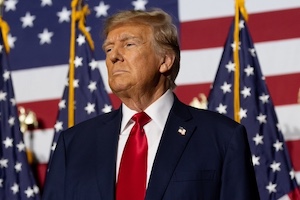
The United States announced on the 29th that it will commit only US$2 billion in humanitarian aid to the United Nations, while warning UN agencies that they must “adapt, downsize, or die” in response to a new fiscal reality. The funding represents only a small fraction of Washington’s past contributions, but the Trump administration argues it is still sufficient to maintain the U.S. position as the world’s largest humanitarian donor. The move also establishes a centralized fund to allocate resources across agencies and priority programs. The decision has raised alarm among humanitarian workers, with some programs and services already being cut.
According to UN data, U.S. aid in 2025 stands at US$3.38 billion, accounting for just 14.8% of total global donations—down sharply from US$14.1 billion the previous year and far below the 2022 peak of US$17.2 billion. U.S. officials noted that annual contributions in the past had reached as high as US$17 billion, including around US$8–10 billion in voluntary funding and several billion dollars in mandatory UN membership dues. Critics argue that cuts in Western aid will leave millions facing hunger, displacement, or disease, while also eroding U.S. global soft power.
The decision has plunged many UN agencies into crisis, particularly those responsible for refugees, migrants, and food assistance. The Trump administration’s multibillion-dollar cuts to foreign aid have forced these organizations to slash budgets, scale back aid programs, and eliminate thousands of jobs. Other major Western donors, such as Germany, have also reduced aid as defense spending rises. UN humanitarian chief Martin Griffiths warned that the global humanitarian response is overstretched and underfunded, leaving the UN with “brutal choices” about how to focus scarce resources on those in greatest need.
- Read more
- 39 reads
Guinea Presidential Election Begins as Junta Leader Doumbouya Expected to Win
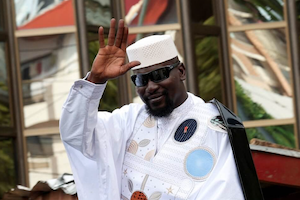
Guinea, a West African nation, goes to the polls on the 28th in a presidential election widely expected to be won by incumbent junta leader Mamady Doumbouya, amid a race lacking serious challengers.
According to Reuters, Doumbouya, in his 40s, is a former special forces commander who seized power in a 2021 military coup that ousted then-president Alpha Condé. He is running in the election as an independent candidate and will nominally compete against eight other contenders. However, with no strong rivals in the race, the outcome is widely seen as a foregone conclusion.
Former president Condé and long-time opposition leader Cellou Dalein Diallo remain in exile. If elected, Doumbouya would begin a seven-year presidential term. His rule, however, has drawn growing scrutiny over the state of political freedoms in Guinea. Several civil society groups have accused the authorities of restricting public debate, banning demonstrations, suppressing press freedom, and narrowing the space for opposition activity.
Benedict Manzin, Middle East and Africa chief analyst at risk consultancy Sibylline, said that once formally elected, Doumbouya is likely to further leverage presidential powers to consolidate his own authority and entrench the military’s political influence in Guinea.
- 54 reads
Macron Approval Hits Record Low; Far-Right Bardella Tops Poll
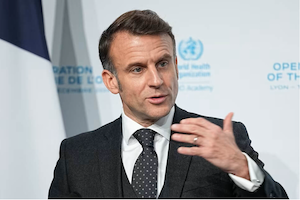
According to a report by AFP, French President Emmanuel Macron is set to deliver his year-end address in a few days, but recent opinion polls show his approval rating has fallen to its lowest level since he was first elected in 2017.
In a poll conducted by Toluna/Harris Interactive for the LCI news channel, only 25% of respondents said they held a favorable view of Macron.
Jean-Daniel Levy, head of Toluna/Harris, said in a statement that the French public appears to be judging Macron primarily through the lens of domestic politics, rather than his positions on foreign policy.
The online survey of 1,099 French adults found that only 37% of respondents plan to watch the year-end address live on December 31, down from 40% last year.
The poll also shows that approval ratings for all major political leaders in France have declined. However, the most positive momentum currently belongs to Jordan Bardella, the 30-year-old president of the far-right National Rally (RN) party. A poll conducted in November showed Bardella to be the party leader with the strongest support ahead of the 2027 French presidential election, raising the possibility that he could become the youngest president in French history. The current youngest president on record is Macron himself, who was 39 years old when he took office in 2017.
- 249 reads
Human Rights
Fostering a More Humane World: The 28th Eurasian Economic Summi

Conscience, Hope, and Action: Keys to Global Peace and Sustainability

Ringing FOWPAL’s Peace Bell for the World:Nobel Peace Prize Laureates’ Visions and Actions

Protecting the World’s Cultural Diversity for a Sustainable Future

Puppet Show I International Friendship Day 2020

